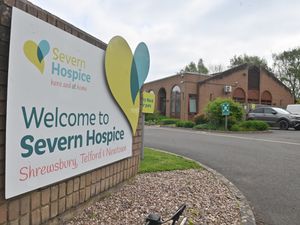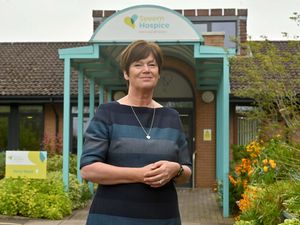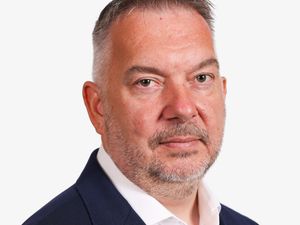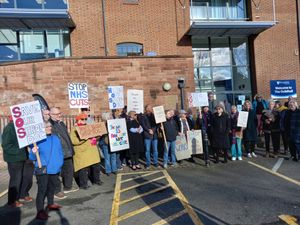Support plea after dramatic rise in dementia cases in five years
The number of dementia sufferers in the county has gone up more than 50 per cent in five years, with charities saying more support is vital.
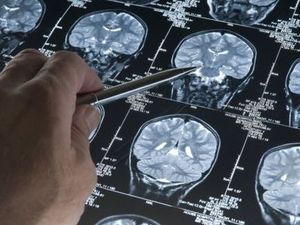
The increase in both Telford and Shropshire is above the national average of 41 per cent, and reflects better systems of diagnosing the illness, but also the need for increasing support.
The number of people on the dementia register in the Shropshire Clinical Commissioning Group area is up from 2,351 in 2014, to 3,628 last year – a rise of 54 per cent. Over the same period the figure has risen from 809 in the Telford & Wrekin CCG area, to 1,270 – up 57 per cent.
Dr. Karen Harrison Dening, head of research and publications at Dementia UK said the response to the increasing number of people with dementia has been "very poor".
She said: "I think there are two main issues here. The first is that we are going to have a huge increase in population of older people, and one of the main risk factors of dementia is age. There is also going to be a reduction in the number of younger people who will be able to care for them.
"We still have a very, very poor response to this. We need to sharpen up considerably. Technology is getting better and we are starting to affect a diagnosis earlier but the question is, then what?
"The second element is there is a huge population that already has dementia. This is one aspect that concerns Dementia UK as there is a growing number of those people that we have a duty of care to. That is going to only increase in cost."
Dr Harrison Dening said that improvements are needed in the care provided – with sufferers frequently having to rely on family members.
Postcode lottery
She said: "Care at the moment is very hit or miss. There are no standardised services across the country so it is still very much a postcode lottery as to what care and support you might receive.We rely heavily on families to care for their loved ones themselves.
"If you developed cancer in later life, the NHS would step in. Alzheimer’s (one type of dementia) and dementia is a brain disease, but the NHS doesn’t provide the same level of care and treatment as for other diseases and conditions.
"A third of us will die with or from dementia. This is an issue that needs tackling now."
Ewan Russell, head of policy and campaigns at Alzheimer’s Society, also said families are bearing significant costs of care.
He said: "Across the board we are seeing increasing numbers of people living with dementia and simply not enough support is being provided.
"Alzheimer’s Society has published a report from LSE that shows that by 2040 the number of people living with dementia will have doubled but the costs of care for those people is going to triple. Costs have gone up to £35bn in 2019 and will have trebled to £94bn in two decades.
"Families are bearing two thirds of the costs of dementia care. With more people getting it, we do not think that that is sustainable at all."
A spokesman for NHS England said the increase in diagnoses means more people are getting care.
He said: "Spotting dementia in a timely way means people get the care they need, when they need it, so it’s good news that thanks to concerted efforts nationally and locally the NHS is now diagnosing more people than ever before, beating the target we set ourselves.

